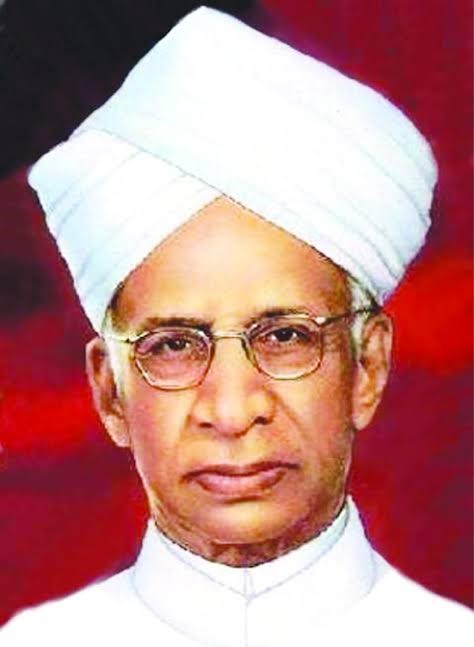Dr. Sarvepalli Radhakrishnan's Educational Philosophy: A Synthesis of Knowledge and Wisdom

Introduction
Dr. Sarvepalli Radhakrishnan was not only India's second President and first Vice President but also one of the country's most influential philosophers and educators. Born in 1888, Radhakrishnan's educational thoughts were deeply rooted in his philosophical works, which sought to bridge the gap between Eastern and Western thought. His vision for education was one that emphasized moral, spiritual, and intellectual development, aiming to cultivate individuals who could contribute positively to society. His birthday is celebrated as Teachers' Day in India, underscoring his profound impact on education.
Key Aspects of Radhakrishnan's Educational Philosophy
- Education for Human Development:
- Holistic Approach: Radhakrishnan believed education should nurture the whole person, integrating physical, intellectual, moral, and spiritual dimensions. He emphasized the development of character alongside academic excellence.
- Spiritual and Ethical Education: He advocated for education that instills values, understanding that true education is about leading a meaningful life, not just career success.
- Integration of Eastern and Western Philosophies:
- Cultural Synthesis: Radhakrishnan was a proponent of synthesizing Indian spiritual wisdom with Western scientific knowledge. He believed this would lead to a more comprehensive understanding of human life.
- Universal Education: His vision included making education accessible to all, transcending cultural and national boundaries, promoting a global humanistic education.
- The Role of the Teacher:
- Guru as Philosopher: Radhakrishnan saw teachers not merely as conveyors of information but as philosophers who shape minds, inspire ethical living, and guide students towards self-realization.
- Professional Respect: He was instrumental in elevating the status of teaching as a profession, arguing for better recognition and conditions for educators.
- Curriculum and Methodology:
- Broad-Based Curriculum: He recommended a curriculum that was not only academic but also included arts, philosophy, and moral education. His idea was to provide students with a broad perspective on life.
- Critical Thinking: Radhakrishnan emphasized the importance of teaching students to think critically, encouraging inquiry and independent thought over mere memorization.
- Education for Social Transformation:
- Democratic Education: He believed education should prepare individuals for democratic participation, fostering a sense of responsibility, cooperation, and social justice.
- Education for Peace: His philosophy included education as a means to promote peace, understanding, and cooperation among different cultures and nations.
Influence on Educational Policy
- University Grants Commission (UGC): As the first chair of the UGC, Radhakrishnan played a pivotal role in shaping higher education policy in India, advocating for quality, autonomy, and the integration of research with education.
- National Education Policy: His thoughts influenced the educational policies of India, especially in emphasizing the importance of teacher education, promoting research, and integrating moral education.
- Global Impact: His writings and lectures have influenced educational thought internationally, particularly in areas concerning the philosophy of education, ethics, and inter-cultural dialogue.
Challenges and Modern Relevance
- Implementing Holistic Education: Balancing Radhakrishnan's vision of holistic education with the current emphasis on technical and job-oriented skills poses challenges.
- Cultural Integration: Ensuring that education reflects the synthesis of diverse cultural philosophies, as he advocated, remains a task in our increasingly globalized world.
- Teacher Training: His emphasis on the teacher's role as a moral and intellectual guide highlights the need for comprehensive teacher training programs that go beyond subject knowledge.
Conclusion
Dr. Sarvepalli Radhakrishnan's educational philosophy is a call to see education not just as a tool for economic or professional advancement but as a means to enrich the human spirit, foster ethical living, and promote global understanding. His legacy in education is marked by his belief in the transformative power of learning, where teachers are revered not just as educators but as shapers of society. In an era where education is often measured by quantifiable outcomes, Radhakrishnan's ideas remind us of the profound, qualitative impact education can have on individual lives and the collective human experience.
